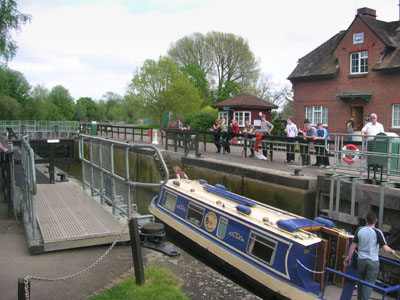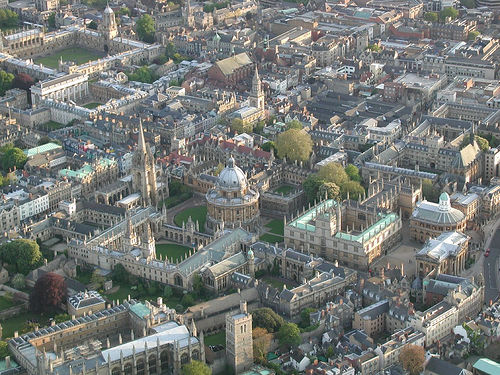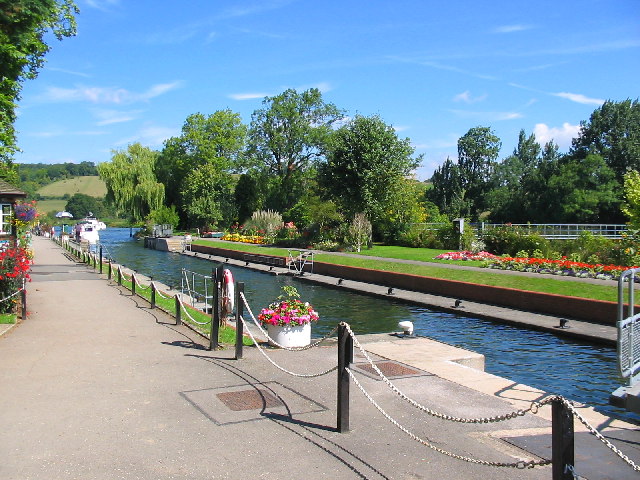|
Oxford-Burcot Commission
The Oxford-Burcot Commission was the first Commission concerned with the management of the River Thames, appointed by an Act of Parliament of 1605 by James I to make the stretch of river from Burcot to Oxford navigable. The Commission took responsibility for the management of the River Thames between Oxford and Burcot. It consisted of 18 members, including a representative each from Oxford city and from the University. However its work was irregular and by 1611 it had ceased altogether. A second strengthened Act of Parliament in 1623 allowed for the appointment of eight commissioners of sewers. This was also known as the ''Oxford-Burcot Commission''. It had the power to tax Oxford city and the University, to clean the river and to install locks and weirs. Iffley Lock, Sandford Lock and a lock on the Swift Ditch near the present Abingdon Lock were built in 1631. However, its work was slow and costly and the first barge did not reach Oxford until 1635. Consequently Thames Navi ... [...More Info...] [...Related Items...] OR: [Wikipedia] [Google] [Baidu] |
River Thames
The River Thames ( ), known alternatively in parts as the The Isis, River Isis, is a river that flows through southern England including London. At , it is the longest river entirely in England and the Longest rivers of the United Kingdom, second-longest in the United Kingdom, after the River Severn. The river rises at Thames Head in Gloucestershire, and flows into the North Sea near Tilbury, Essex and Gravesend, Kent, via the Thames Estuary. From the west it flows through Oxford (where it is sometimes called the Isis), Reading, Berkshire, Reading, Henley-on-Thames and Windsor, Berkshire, Windsor. The Thames also drains the whole of Greater London. In August 2022, the source of the river moved five miles to beyond Somerford Keynes due to the heatwave in July 2022. The lower reaches of the river are called the Tideway, derived from its long tidal reach up to Teddington Lock. Its tidal section includes most of its London stretch and has a rise and fall of . From Oxford to th ... [...More Info...] [...Related Items...] OR: [Wikipedia] [Google] [Baidu] |
Abingdon Lock
Abingdon Lock is a lock on the River Thames in England, less than 1 mile east and upstream of Abingdon, Oxfordshire, on the opposite bank of the river. It was originally built in 1790 by the Thames Navigation Commission. The weir runs across from the Abingdon side to the lock island, and has a pedestrian walkway across it. According to a tablet above the front door, the current lock-keeper's house dates from 1928. Ice creams and refreshments have been sold from the door of the house for at least 30 years. History The navigation route in the vicinity of Abingdon has been subject to change over the centuries. The Swift Ditch further to the east was the original course of the river Thames. The stream to the town was developed by the monks of Abingdon Abbey and the original weir is reputed to have been built by them during the 10th century. A pound lock was built on the Swift Ditch by the Oxford-Burcot Commission in 1635 making it then the navigation route. In 1788 several cit ... [...More Info...] [...Related Items...] OR: [Wikipedia] [Google] [Baidu] |
1623 Establishments In England
Sixteen or 16 may refer to: *16 (number), the natural number following 15 and preceding 17 *one of the years 16 BC, AD 16, 1916, 2016 Films * ''Pathinaaru'' or ''Sixteen'', a 2010 Tamil film * ''Sixteen'' (1943 film), a 1943 Argentine film directed by Carlos Hugo Christensen * ''Sixteen'' (2013 Indian film), a 2013 Hindi film * ''Sixteen'' (2013 British film), a 2013 British film by director Rob Brown Music *The Sixteen, an English choir *16 (band), a sludge metal band * Sixteen (Polish band), a Polish band Albums * ''16'' (Robin album), a 2014 album by Robin * 16 (Madhouse album), a 1987 album by Madhouse * ''Sixteen'' (album), a 1983 album by Stacy Lattisaw *''Sixteen'' , a 2005 album by Shook Ones * ''16'', a 2020 album by Wejdene Songs * "16" (Sneaky Sound System song), 2009 * "Sixteen" (Thomas Rhett song), 2017 * "Sixteen" (Ellie Goulding song), 2019 *"16", by Craig David from ''Following My Intuition'', 2016 *"16", by Green Day from ''39/Smooth'', 1990 *"16", by ... [...More Info...] [...Related Items...] OR: [Wikipedia] [Google] [Baidu] |
1611 Disestablishments
Events January–June * February 27 – Sunspots are observed by telescope, by Frisian astronomers Johannes Fabricius and David Fabricius. Johannes publishes the results of these observations, in ''De Maculis in Sole observatis'' in Wittenberg, later this year. Such early discoveries are overlooked, however, and the first sighting is claimed a few months later, by Galileo Galilei and Christoph Scheiner. * March 4 – George Abbot is enthroned as Archbishop of Canterbury. * March 9 – Battle of Segaba in Begemder: Yemana Kristos, brother of Emperor of Ethiopia Susenyos I, ends the rebellion of Melka Sedeq. * April 4 – Denmark-Norway declares war on Sweden, then captures Kalmar. * April 28 – The ''Colegio de Nuestra Señora del Santísimo Rosario'' is established in Manila, the Philippines (later renamed Colegio de Santo Tomas, now known as the University of Santo Tomas). * May 2 – The Authorized King James Version of the Bible ... [...More Info...] [...Related Items...] OR: [Wikipedia] [Google] [Baidu] |
1605 Establishments In England
Sixteen or 16 may refer to: *16 (number), the natural number following 15 and preceding 17 *one of the years 16 BC, AD 16, 1916, 2016 Films * '' Pathinaaru'' or ''Sixteen'', a 2010 Tamil film * ''Sixteen'' (1943 film), a 1943 Argentine film directed by Carlos Hugo Christensen * ''Sixteen'' (2013 Indian film), a 2013 Hindi film * ''Sixteen'' (2013 British film), a 2013 British film by director Rob Brown Music *The Sixteen, an English choir * 16 (band), a sludge metal band * Sixteen (Polish band), a Polish band Albums * ''16'' (Robin album), a 2014 album by Robin * 16 (Madhouse album), a 1987 album by Madhouse * ''Sixteen'' (album), a 1983 album by Stacy Lattisaw *''Sixteen'' , a 2005 album by Shook Ones * ''16'', a 2020 album by Wejdene Songs * "16" (Sneaky Sound System song), 2009 * "Sixteen" (Thomas Rhett song), 2017 * "Sixteen" (Ellie Goulding song), 2019 *"16", by Craig David from ''Following My Intuition'', 2016 *"16", by Green Day from ''39/Smooth'', 1990 *"16", b ... [...More Info...] [...Related Items...] OR: [Wikipedia] [Google] [Baidu] |
History Of Oxford
' The history of Oxford in England dates back to its original settlement in the Saxon period. Originally of strategic significance due to its controlling location on the upper reaches of the River Thames at its junction with the River Cherwell. The town grew in national importance during the Norman period. The University of Oxford was established in the 12th-century and would eventually dominate the activity within the town, this also resulted in several town and gown conflicts. The city was besieged during The Anarchy in 1142 and Oxford Castle was attacked during the Barons War in the early 13th century. Oxford was greatly affected during the English Reformation, brought on by Henry VIII in his dissolution of the monasteries. The town also played an important role in the English Civil War, where it experienced another siege when it housed the court of Charles I. Later in the 19th and 20th century, the town grew and underwent an industrial boom where major printing and car-manufa ... [...More Info...] [...Related Items...] OR: [Wikipedia] [Google] [Baidu] |
Defunct Public Bodies Of The United Kingdom
{{Disambiguation ...
Defunct (no longer in use or active) may refer to: * ''Defunct'' (video game), 2014 * Zombie process or defunct process, in Unix-like operating systems See also * * :Former entities * End-of-life product * Obsolescence Obsolescence is the state of being which occurs when an object, service, or practice is no longer maintained or required even though it may still be in good working order. It usually happens when something that is more efficient or less risky r ... [...More Info...] [...Related Items...] OR: [Wikipedia] [Google] [Baidu] |
Locks On The River Thames
The English River Thames is navigable from Cricklade (for very small, shallow boats) or Lechlade (for larger boats) to the sea, and this part of the river falls 71 meters (234 feet). There are 45 locks on the river, each with one or more adjacent weirs. These lock and weir combinations are used for controlling the flow of water down the river, most notably when there is a risk of flooding, and provide for navigation above the tideway. History From ancient times there were many obstructions across the Thames, for fish-pounds and millers' weirs. They are referred to by Asserius Menevensis in the ninth century and Magna Carta (1215) states that "weirs, for the time to come, shall be demolished in the Thames and Medway, except on the sea coast." It appears this never happened. In the Middle Ages, the fall on the river in its middle and upper sections was used to drive watermills for the production of flour and paper and various other purposes such as metal-beating. This involv ... [...More Info...] [...Related Items...] OR: [Wikipedia] [Google] [Baidu] |
George II Of Great Britain
, house = Hanover , religion = Protestant , father = George I of Great Britain , mother = Sophia Dorothea of Celle , birth_date = 30 October / 9 November 1683 , birth_place = Herrenhausen Palace,Cannon. or Leine Palace, Hanover , death_date = , death_place = Kensington Palace, London, England , burial_date = 11 November 1760 , burial_place = Westminster Abbey, London , signature = Firma del Rey George II.svg , signature_alt = George's signature in cursive George II (George Augustus; german: link=no, Georg August; 30 October / 9 November 1683 – 25 October 1760) was King of Great Britain and Ireland, Duke of Brunswick-Lüneburg (Hanover) and a prince-elector of the Holy Roman Empire from 11 June 1727 ( O.S.) until his death in 1760. Born and brought up in northern Germany, George is the most recent British monarch born outside Great Britain. The Act of Settlement 1701 and the Acts of Union 1707 positioned his grandmother, ... [...More Info...] [...Related Items...] OR: [Wikipedia] [Google] [Baidu] |
Thames Navigation Commission
The Thames Navigation Commission managed the River Thames in southern England from 1751 to 1866. In particular, they were responsible for installing or renovating many of the locks on the river in the 18th and early 19th centuries History The first Commission concerned with the River Thames was the Oxford-Burcot Commission, appointed in an Act of 1605 by James I. It took responsibility for the river between Oxford and Burcot. The Oxford-Burcot Commission was reasonably successful. Thus, the permanent Thames Navigation Commissioners were appointed through a further Act under King George II in 1751. This Commission had similar powers covering the whole of the river down to Staines as far as a point marked by the London Stone; below this point the rights and responsibilities for managing the Thames were vested in the City of London Corporation. Earlier commissions had been created by acts as early as 1695, although these had limited terms. The Thames Conservancy was established ... [...More Info...] [...Related Items...] OR: [Wikipedia] [Google] [Baidu] |
Barge
Barge nowadays generally refers to a flat-bottomed inland waterway vessel which does not have its own means of mechanical propulsion. The first modern barges were pulled by tugs, but nowadays most are pushed by pusher boats, or other vessels. The term barge has a rich history, and therefore there are many other types of barges. History of the barge Etymology "Barge" is attested from 1300, from Old French ''barge'', from Vulgar Latin ''barga''. The word originally could refer to any small boat; the modern meaning arose around 1480. ''Bark'' "small ship" is attested from 1420, from Old French ''barque'', from Vulgar Latin ''barca'' (400 AD). The more precise meaning of Barque as "three-masted sailing vessel" arose in the 17th century, and often takes the French spelling for disambiguation. Both are probably derived from the Latin ''barica'', from Greek ''baris'' "Egyptian boat", from Coptic ''bari'' "small boat", hieroglyphic Egyptian D58-G29-M17-M17-D21-P1 and similar ''b ... [...More Info...] [...Related Items...] OR: [Wikipedia] [Google] [Baidu] |





_und_ihre_Kinder_Georg_August_und_Sophie_Dorothea.jpg)
